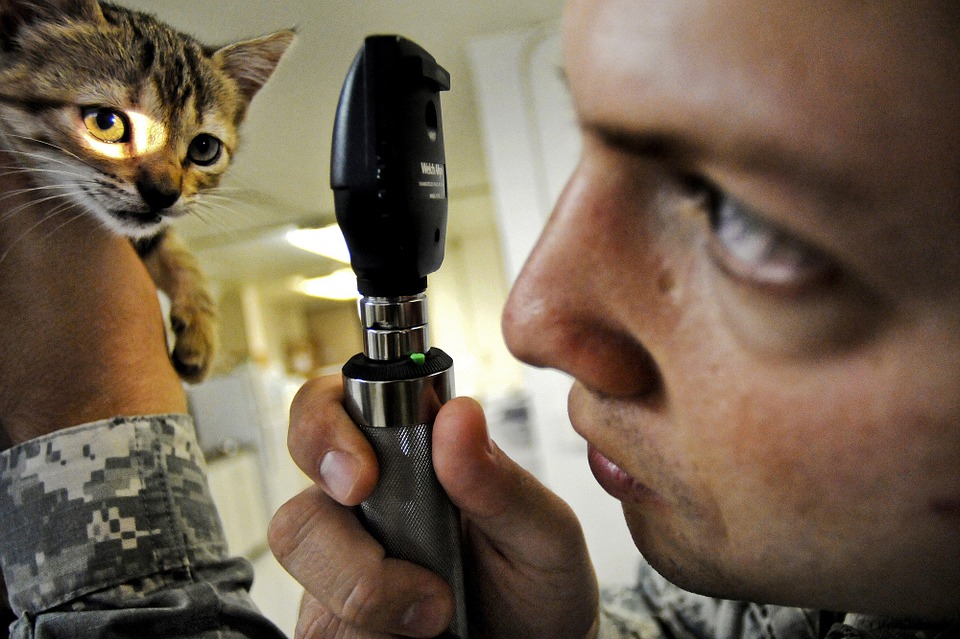23 May |
Posted by Stephen Trevathan |
no comments |
cat adoption tips, cat health issues, cat health questions, veterinary recommendations

You’ve just adopted your first cat, congratulations! Your family just got a little bigger and a whole lot more lovable. The feeling of bringing home an animal in need is undoubtedly infectious, but unfortunately your cat could be also.
Although your new cat may look healthy, do yourself and your family a favor and schedule an immediate check up. Here is a list of possible problems that could require a visit to your local veterinarian.
Flea checks are one of the most routine assessments new pet owners make, but that doesn’t mean these external parasites are easy to find. In order to protect the human and animal inhabitants of your home from disease and infection, be sure to take your new cat or kitten to the vet immediately.
There are often small signs of fleas that are very easy to miss. We would recommend that you bring your adopted cat to a vet to have them checked for fleas and worms.
If you adopt a cat from a reputable establishment, like the ASPCA or your local humane society, they should have received all the necessary vaccinations and blood work. Unfortunately, there are situations where the animal hasn’t received the proper vaccinations.
We recommend scheduling a wellness check for your new cat right away! This is a precautionary measure to ensure that the cat is in sound health and that he or she is adjusting to their new surroundings. You’ll be glad to know that all is good for you and your new four-legged family member.
Just like a human child, your cat will have dental care needs imperative to its proper growth. Have you ever heard of periodontal disease? This is an inflammation of the tooth’s deep supporting structures that’s triggered by accumulated food and bacteria buildup along a feline’s gum line. Periodontal disease is one of the most common diseases found in cats.
If you have adopted a cat, we recommend that you schedule a dental checkup right away and be sure to make this a regular thing throughout your cat’s lifetime.
They don’t say that cat’s have nine lives for nothing. The life of a stray can be very hard. If you’ve brought home a newly domesticated feline, a trip to the vet is necessary. Sometimes a new pet will have some wounds of ambiguous origin– fights between cats are common in shelters due to the large number of strays.
These kinds of injuries can be serious and require extensive medical attention. Pet owners need to address these “mysterious wounds” as soon as possible, because the potential for rabies can be high.

Strays and shelter cats are also at a higher risk for infection. Bringing one into your home without taking the proper precautions can put the rest of your family at risk. Upper respiratory infections are common with cats and don’t always present themselves clearly to a new owner, so seeking professional care is important.
Viral infections, such as feline herpes or feline AIDS, are also found in many strays and may require quarantine to treat. To keep your family and your furry friends safe, be sure to get them checked by a vet immediately.
Internal parasites are another common problem amongst cats that are adopted. This includes ringworm and a variety of other parasites that pose a significant health risk for your new pet. Luckily, you can de-worm your cat in no time if you bring them to the local veterinarian. Getting them checked right away is the best way to prevent long-term damage.
Regardless of the way they look, remember to get your cat checked out by a veterinarian as soon as you can. It’ll keep you and your family safe and happy and facilitate a seamless transition into the home.
Did you know that June is Adopt a Cat month? With the proper care and courtesies, your cat will live a long and happy life filled with plenty of naps and even more cat nip! Also, if you know about an older cat that is not longer receiving the love it needs, we recommend contacting Journey’s End Animal Sanctuary in DeLand.